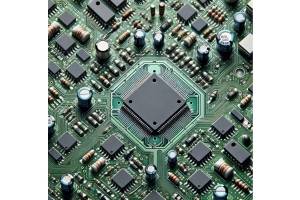When it comes to designing Battery Management Systems (BMS), selecting the right Microcontroller Unit (MCU) is critical. The MCU is the heart of a BMS board, overseeing the monitoring and management of the battery cells. This guide aims to provide insights into choosing the best MCU model for BMS boards, catering to the needs of designers and engineers in the field.
Understanding the Role of MCU in BMS
The MCU in a BMS board is responsible for critical tasks such as cell monitoring, voltage and current measurement, state of charge (SoC) calculations, and communicating with external systems. The choice of MCU can significantly impact the efficiency, accuracy, and reliability of the BMS.
Key Factors in Selecting MCU for BMS Boards
-
Processing Power: The MCU must be capable of handling the computational demands of the BMS, including real-time processing of sensor data and complex algorithms.
-
Analog-to-Digital Converters (ADCs): High-quality ADCs are essential for accurate voltage and current measurements. Look for MCUs with integrated ADCs that offer high resolution and fast sampling rates.
-
Communication Interfaces: Choose MCUs with the necessary communication interfaces, such as CAN, SPI, or I2C, to ensure seamless integration with other systems.
-
Low Power Consumption: Especially important for battery-powered devices, an MCU with low power consumption extends the overall battery life.
-
Operating Temperature Range: Ensure the MCU can operate reliably over the temperature range expected in the BMS application.
-
Robustness and Reliability: The MCU should be proven in demanding environments, especially for automotive or industrial BMS applications.
Top MCU Models for BMS Boards
-
Texas Instruments MSP430: Known for its low power consumption and integrated high-resolution ADCs, it’s ideal for portable BMS applications.
-
STMicroelectronics STM32: Offers a range of MCUs with robust processing capabilities and extensive communication features, suitable for high-performance BMS boards.
-
NXP LPC Series: Renowned for their reliability and wide operating temperature range, making them suitable for automotive BMS applications.
-
Microchip PIC Microcontrollers: Provides a balance of performance and power efficiency, with ample peripheral support for diverse BMS requirements.
-
Infineon XMC Series: Designed for industrial applications with high processing needs and sophisticated safety features.
Conclusion
Selecting the right MCU model for a BMS board is a nuanced decision that impacts the system's overall performance and reliability. By considering factors like processing power, ADC quality, communication interfaces, power consumption, and robustness, designers can choose an MCU that best fits their BMS application. With the continuous advancements in MCU technology, staying informed and selecting the optimal microcontroller becomes a pivotal step in creating efficient and reliable BMS solutions.





